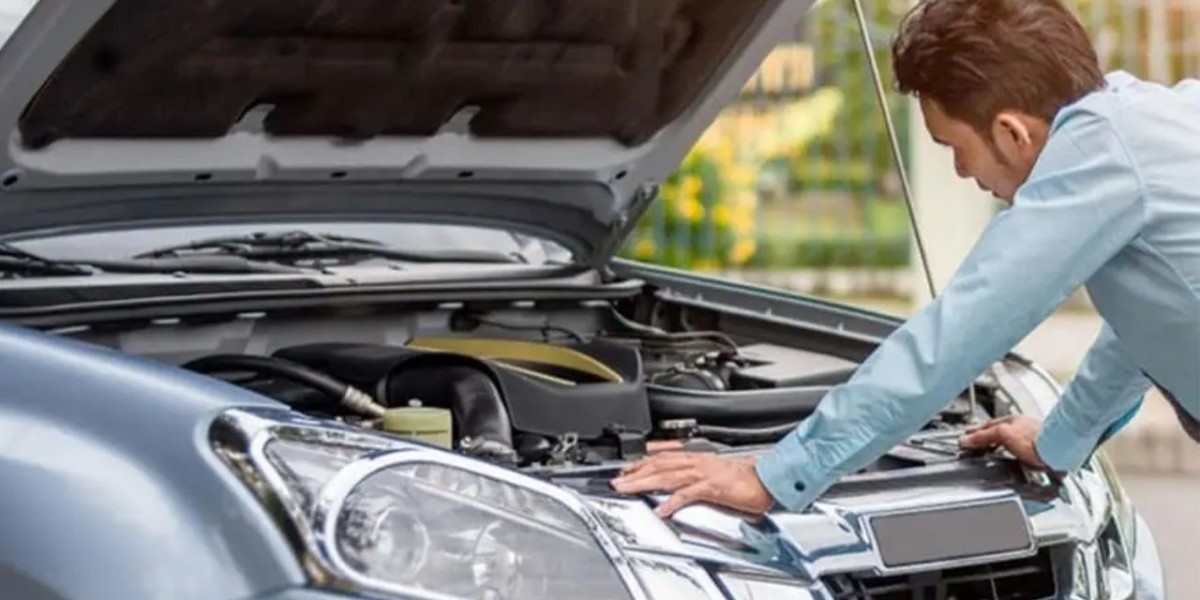Car noises can be a real headache, especially when they seem to appear out of nowhere. Whether it’s a grinding noise while driving but not brakes applied, a squeak, or a rattle, these sounds often leave drivers wondering what’s causing them and how to fix them. Understanding the source of the noise is crucial in determining whether it's a simple issue or something that requires professional attention.
In this guide, we’ll walk you through common car noises, how to identify them, and practical tips on how to fix them.
1. Grinding Noise While Driving
A grinding noise while driving, especially when the brakes aren’t engaged, is one of the most concerning sounds a car can make. It often signals a serious mechanical issue that needs to be addressed immediately.
- Possible Causes: One of the most common causes is worn-out wheel bearings. When these bearings are damaged, they produce a grinding or growling sound while the car is in motion. Another potential cause is damaged or failing CV joints in the drivetrain, which can create a similar grinding noise.
- How to Fix It: If you’re hearing this grinding noise consistently, it’s best to have your vehicle inspected by a mechanic. In the case of bad wheel bearings or CV joints, these parts will need to be replaced. Delaying repairs could lead to more serious damage and costly repairs down the road.
2. Squealing or Squeaking Noises from the Engine Area
Squealing or squeaking noises often come from the engine bay, especially during acceleration. These high-pitched sounds can be bothersome but are generally easier to diagnose and fix.
- Possible Causes: The most common culprits for squealing noises are worn or loose serpentine belts. These belts power various engine components such as the alternator, power steering pump, and air conditioning. If the belt is too loose or damaged, it can slip, causing a squeal. In some cases, the pulleys that the belts run on can also wear out and cause the noise.
- How to Fix It: If the squealing noise is coming from the serpentine belt, you can often fix the issue by replacing the belt or tightening it if it’s loose. If the pulleys are the issue, they may need to be replaced as well. Regular maintenance of the belts and pulleys can prevent squealing noises in the future.
3. Rattling or Clunking Noise from Under the Car
A rattling or clunking noise coming from underneath your car, especially while driving over bumps or rough terrain, can be unsettling. These noises often point to issues with suspension components or the exhaust system.
- Possible Causes: Worn-out shock absorbers, struts, or bushings can cause rattling sounds, especially when driving over uneven surfaces. The exhaust system is another area to check, as loose parts or a damaged muffler can also cause clunking noises.
- How to Fix It: If the rattling noise is coming from the suspension, it’s a good idea to have the shock absorbers, struts, or bushings checked for wear and replaced as needed. For the exhaust system, inspect the pipes and muffler for any loose or broken parts. A mechanic can quickly diagnose the problem and perform the necessary repairs.
4. Whining Noise While Accelerating
A whining noise during acceleration is another common issue that many drivers face. This sound can vary in pitch and volume depending on the specific cause.
- Possible Causes: A whining noise could be caused by a number of factors, including low power steering fluid, a failing power steering pump, or issues with the transmission. A worn or damaged serpentine belt can also cause a whining sound, especially when the engine is under load.
- How to Fix It: Start by checking the power steering fluid levels and topping them off if necessary. If the noise persists, it could be a sign of a failing power steering pump, which will need to be replaced. If the issue is related to the serpentine belt or transmission, a mechanic will need to inspect those components and suggest appropriate repairs.
5. Clicking Noise When Turning or Accelerating
If you notice a clicking noise when turning or accelerating, this is often an indicator of an issue with the drivetrain.
- Possible Causes: The clicking sound could be a sign of worn-out CV joints, which are part of the drivetrain. These joints are responsible for transferring power from the engine to the wheels, and when they fail, they produce a distinct clicking sound.
- How to Fix It: If you hear clicking noises while turning or accelerating, it’s important to get your CV joints inspected immediately. Replacing faulty CV joints is essential to maintaining safe vehicle operation and preventing further damage to the drivetrain.
6. Hissing Noise from the Engine Bay
A hissing noise coming from the engine bay, particularly when the engine is running, is another common issue that should be addressed quickly.
- Possible Causes: A hissing noise often indicates a vacuum leak in the engine, which can affect the vehicle’s performance. It could also be a sign of a leaking radiator hose or a problem with the cooling system.
- How to Fix It: If the issue is a vacuum leak, it can be fixed by replacing the vacuum hose or seal that’s causing the leak. If it’s a coolant leak, you may need to replace a damaged hose or radiator. A professional mechanic can help locate and fix the leak.
Conclusion
Identifying and fixing annoying car noises can save you time, money, and frustration. While some noises, such as a grinding noise while driving but not brakes applied, may indicate serious issues that require immediate attention, others may be more manageable with routine maintenance.
Regularly checking belts, tires, suspension components, and the exhaust system can help prevent many of the common noises that occur while driving. If you’re ever in doubt, don’t hesitate to consult a professional mechanic to ensure that your vehicle is in optimal condition. By addressing these issues early, you can keep your car running smoothly and avoid costly repairs in the future.










